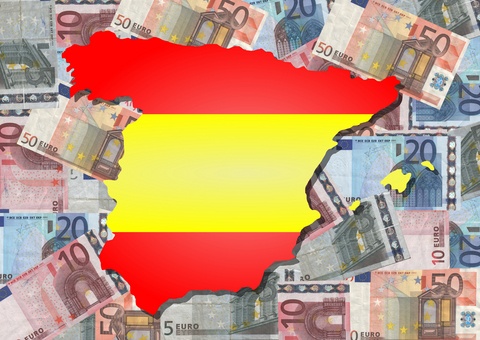
In has been well documented that issues between the Spanish government and the local government in Catalonia have spilled over into violence. A recent non-binding vote on independence for the region of Catalonia prompted a vicious backlash from the Spanish government which was seen as heavy-handed by many observers. While around 90% of those who voted in the independence referendum voted in favour of being a separate nation, we know that the turnout was relatively low and the vast majority of those wishing to remain part of Spain refused to even cast their vote.
This begs the question, if Catalonia leaves Spain how will this impact the Spanish economy and Spanish property market?
Catalonia accounts for 20% of Spanish GDP
Despite the fact that Catalonia is a relatively small area compared to the whole of Spain, the busy industrial port of Barcelona helps the region account for approximately 20% of Spanish GDP. This obviously creates a good strong flow of income for the Spanish government for expenditure right across the country. In the aftermath of the 2008 economic downturn there were murmurings of discontent across Catalonia amid suggestions that income flowing into the central Spanish government pot was not being redistributed in an even manner.
There are two things to consider here, if Catalonia was to go independent or at worse receive more of the Spanish government budget pot then this must surely help house prices in the region? If Spain was to lose the massive income created by Catalonia this would reduce expenditure on public services, likely increase unemployment and lead to further bouts of austerity. We know that austerity has a massive impact upon local housing markets with household incomes under pressure and employment stability negligible.
Spanish housing market
Despite the fact there have been signs of activity inshore, there are still many coastal housing markets across Spain still struggling to recover. We know that Spanish banks still have thousands upon thousands of unwanted properties on their balance sheets which they will jettison as and when they receive an acceptable offer. We know that some international investors have expressed interest in acquiring large portfolios direct from Spanish banks although agreeing an acceptable price is proving difficult in some circumstances.
This fragile recovery in Spanish property prices would be seriously undermined if Catalonia was to go independent and take with it the 20% of Spanish GDP which it creates. The uncertainty might unsettle the Catalonian housing market in the short term, if independence was granted, but in the medium to long term this might prove to be an extremely interesting investment opportunity?
EU partners stand aside
If the violence, intimidation and undemocratic moves by the Spanish government were occurring outside of the European Union we can only guess that the reaction would be very different. So far EU partners have refused to criticise Spain, questioned Catalonia’s ability to call an independence referendum and seemingly ignored the wanton violence much of which was perpetrated by the Spanish police. In reality Spain has struggled more than most to return to property prices seen prior to the 2008 economic crash, unemployment is still a problem and the economy while recovering is not exactly powering ahead. As a consequence, the Spanish authorities cannot afford to let Catalonia leave the fold although the invoking of ancient laws to take control of the regional parliament is just provoking more anger and resentment.
The Spanish government is in a very difficult situation at the moment and some observers believe that the conflict and resentment recent events have created is now too deep-seated to derail the long-term goal of independence.

